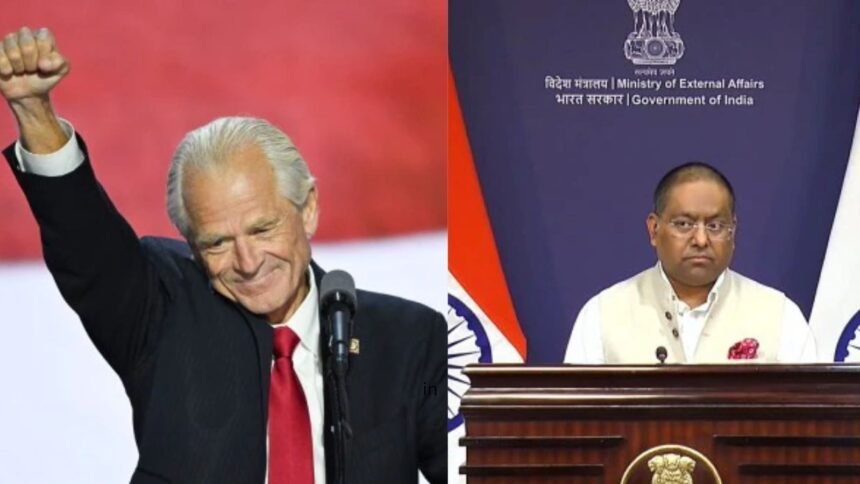After weeks of criticism by Trump aide Peter Navarro over India’s purchase of Russian oil and weapons, the Ministry of External Affairs Friday rejected the claims and termed the statements “inaccurate and misleading.” Navarro, the White House trade adviser, has called India the “oil money laundromat for Kremlin”, accused New Delhi of “strategic freeloading” at the expense of Washington, and also called the Ukraine conflict “Modi’s war“. He had said that if New Delhi “wants to be treated like a strategic partner of the US, it needs to act like one”.
Responding to the comments, MEA spokesperson Randhir Jaiswal said: “We have seen the inaccurate and misleading statements made by Mr. Navarro and obviously we reject them. … This relationship between the United States and India is very important for us. Both our countries share a comprehensive global strategic partnership, which is anchored in our shared interests, democratic values and robust people-to-people ties. … We remain focused on the substantive agenda that our two countries have committed to, and we hope that the relationship will continue to move forward based on mutual respect and shared interests.”
What did Peter Navarro say
In an interview with Bloomberg TV, Navarro had said that “the road to peace [in Ukraine] runs at least partly right through New Delhi”, attacking India’s continued purchase of Russian oil. A day later, on X, he accused India of “strategic freeloading” and wrote that Trump was confronting “this madness”.
Parts of the post were taken from an article he wrote in the Financial Times earlier this month (“India’s oil lobby is funding Putin’s war machine — that has to stop”).
Navarro has linked India’s oil purchases to the trade deficit with the US, arguing: “We run a $50-billion trade deficit with India—and they’re using our dollars to buy Russian oil… A 50% tariff—25% for unfair trade and 25% for national security—is a direct response.”
New Delhi has countered that Washington had encouraged India to buy Russian oil to stabilise global prices and stressed its purchases are guided by domestic energy needs. External Affairs Minister S Jaishankar, during his visit to Moscow last week, called the tariffs “unjustified and unreasonable” and said they were wrongly being “presented as an oil issue.”







